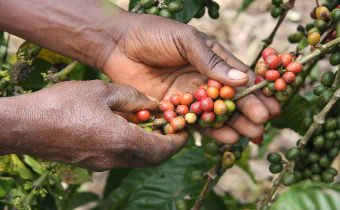 News by coffee researchers in the country that new zones had been identified as the next production frontiers is not only music to the ears of the farmers in those areas but also to the country and a major economic boost. This as coffee touted as Kenya’s black gold continue recording dismal production especially in traditionally active areas like Central Kenya which have now been swarmed by real estate growth.
News by coffee researchers in the country that new zones had been identified as the next production frontiers is not only music to the ears of the farmers in those areas but also to the country and a major economic boost. This as coffee touted as Kenya’s black gold continue recording dismal production especially in traditionally active areas like Central Kenya which have now been swarmed by real estate growth.
And with the vagaries of the weather which have been particularly capricious in recent times with new pests and diseases, and allowing traditional ones to develop immunity against conventional pesticides, measures to arrest the situation before it spirals out of control should be a matter of when not if.
The Kenyan coffee sector is projected to earn the country $217million in 2013 a dismal amount compared to tea and horticulture which each contribute over $900 million dollars annually. Yet it has been a painful venture for the world’s second most traded commodity which has been on a free fall in terms of production and earnings in the country over the years.
From a crop that was associated with wealth and opulence in the 80’s and 90’s, to the crop associated with despair the numbers tell it all with coffee growing currently standing at 0.4 acres per year as farmers look for alternatives. The volatile prices in the international markets haven’t done any good either. A severe drop in earnings last experienced in 2007 and attributed to increased global supplies has meant that farmers may not recover the production costs.
About 95 per cent of the locally made coffee is exported while the remaining five per cent is consumed in the country which complicates matters further. Such challenges mean that Kenya is an insignificant player in the world coffee markets in terms of volumes. The country averages about 800,000 bags per year while Ethiopia does six million bags, Colombia 12 million, and Brazil almost 30 million. However despite the fluctuations in world coffee prices in recent years, overall demand for coffee is increasing.
But the biggest challenge is in the farm, where farmers are grappling with tending to the coffee varieties from flowering. The setbacks in the farm are a matter of grave concern which calls for immediate intervention because it is at this stage that the Kenyan coffee admired worldwide for its un paralleled quality and aroma is made.
Unsure of whether they are going to get their money back, never mind make a profit, several farmers have been reticent to invest in the fertilisers, pesticides, and manpower required to make their coffee trees flourish. This creates a vicious cycle as production levels plummet and farmers do not earn the revenue required to reinvest in their crops. This difficult situation has made coffee growing unattractive to the younger generation.
But agro input companies in the country have been actively involved in bringing to farmers’ doorsteps new and improved pesticides that are not only environmental friendly but tried and tested across the globe to ensure that farmers farming practices adhere with the internationally accepted standards.
















Comments powered by CComment